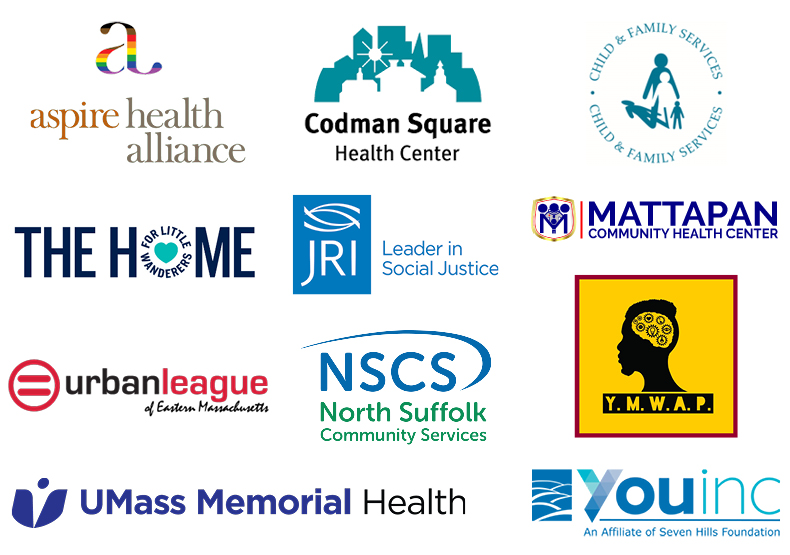Men of Color Career Advancement℠ (MoCCA) Program
Career Ladder Program
Men of Color Career Advancement℠ (MoCCA) Program
A Behavioral Health Service Corps Initiative
The Men of Color Career Advancement℠ (MoCCA) Program is designed for individuals who are seeking educational, career, and job opportunities in the behavioral health field. MoCCA Scholars join a group of peers who work with underserved populations and are committed to making a difference in addressing stigma and mental illness in their communities. They complete a year-long, full-time work placement at a community-based agency and enroll in an online certificate training where they can earn course credits. MoCCA Scholars receive a full-time salary, mentorship, career counseling, and a $1,000 stipend for living expenses during their participation in the program.
To be eligible for the MoCCA Program, applicants must:
- Be 18 years of age or older.
- Self-identify as a man of color.
- Have a high school diploma, HiSET or GED; an associate’s degree; or be currently enrolled in college but have not yet earned a bachelor’s degree.
- Be legally authorized to work in the U.S.
- Pass a Criminal Offender Record Information check.
- Live, work, or be willing to work in the Commonwealth of Massachusetts
MoCCA Scholars enroll in a virtual Certificate Training Program that is offered through William James College. Participants attend a series of weekly didactic seminars on core competencies that are relevant to their training. These include Mental Health First Aid, Suicide Prevention, Substance Use & Addictions, Trauma-Informed Interventions, and Self-Care. The training is offered on Fridays via Zoom during the fall and spring semesters (e.g., 15 weeks per semester) and lasts about 1.5 to 2 hours per week.
Scholars who complete the training are awarded a Certificate of Completion and earn some college credits. They also receive a $1,000 stipend for cost-of-living expenses during their enrollment in the program.
MoCCA Scholars are placed in year-long, full-time positions in community-based agencies where they work in entry-level positions as community health workers, milieu staff, outreach workers, peer navigators, peer support counselors, residential counselors, and therapeutic mentors. They work in a variety of settings including community health centers, outpatient clinics, home-based programs, K-12 schools, residential treatment programs, and inpatient units. They provide a range of direct care services (e.g., health screenings, health education, resource bridging, care coordination, community integration, and social support) to individuals, groups, and families who reside in underserved communities.
MoCCA Scholars become full-time employees of their selected agencies and they receive a full-time salary along with health benefits. Employer partners allow some release time for Scholars to attend the online Certificate Training Program.
To apply for the MoCCA Program, please click on this link.
Completed application materials will be reviewed on a rolling basis until all positions are filled. Incomplete applications will not be considered.
What happens after I apply?
Completed application materials will be reviewed by the program staff and eligible candidates will be invited for an initial interview to be conducted via Zoom.
Qualified applicants will be recommended for a 2nd interview with a field training site/employer partner. Candidates will have the option of interviewing at up to three (3) agencies from a list of approved partners. Once all interviews are conducted, candidates will be informed via email of a final decision regarding the status of their application.
How are participants selected for the MoCCA Program?
In addition to the eligibility criteria described above, program participants are selected based on the following:
- Commitment to serve historically underserved marginalized communities.
- High levels of cultural awareness, sensitivity, and responsiveness.
- Underrepresentation in the behavioral health field (e.g., first-generation students, bilingual/bicultural groups, LGBTQIA+ groups, individuals with disabilities).
- Relevant language proficiency.
- A strong interest in pursuing career ladder opportunities in the behavioral health field.
MoCCA Scholars should expect to:
- Enroll in a virtual Certificate Training Program and attend other professional development activities.
- Earn 2-3 general elective college credits (offered for free upon completion of the training).
- Receive mentorship, career counseling, and coaching support.
- Complete a year-long work/field experience as a full-time worker at an approved agency that is located in the Commonwealth of Massachusetts.
- Earn a full-time salary and benefits while working to support individuals and groups in historically underserved communities in Massachusetts.
- Meet all employer partners’ expectations and job requirements.
- Adhere to employers’ policies and procedures for professional conduct and ethical behavior.
- Actively engage in program evaluation activities (i.e., complete surveys and other data collection measures in a timely manner).
- Maintain ongoing communication with the program staff.
- Perform other tasks, as required by the MoCCA Program.
MoCCA Program Agency and Employer Partners
William James College partners with several community-based organizations to implement the MoCCA Program. They include the following:
- Aspire Health Alliance
- Child and Family Services
- Codman Square Health Center
- Community Healthlink
- Justice Resource Institute
- Mattapan Community Health Center
- North Suffolk Community Services
- The Home for Little Wanderers
- Urban League of Eastern Massachusetts
- YOU, Inc. (An Affiliate of Seven Hills Foundation)
- Young Man with a Plan

Have Questions?
Contact us at the Center for Workforce Development team at workforce@williamjames.edu.
This program is housed in the Center for Workforce Development. The Center’s mission is to build and sustain a diverse and culturally competent workforce equipped with the knowledge, skills, and expertise to increase access to high quality mental health care for all.
Program Funding
This program is funded by the Blue Cross Blue Shield of Massachusetts Foundation.
